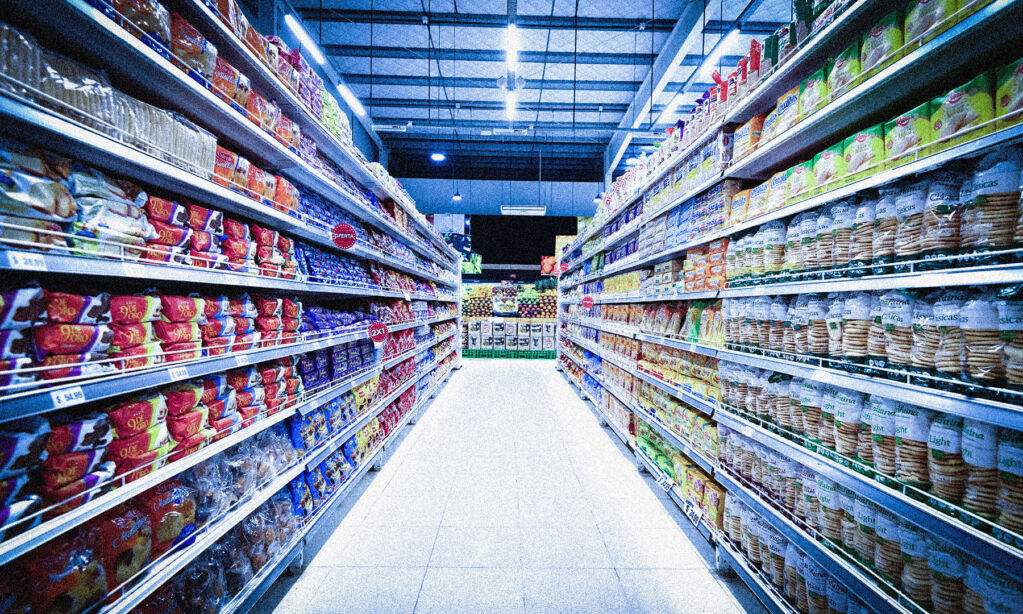This is no surprise. According to the most recent municipal data, one in five Torontonians experienced food insecurity in 2019. Hunger is a well-documented issue in our communities and not much has been done to alleviate it. In 2022, with increased inflation, low social assistance rates and unaffordable housing, it’s now one in four struggling to make ends meet with no relief in sight.
At The Stop Community Food Centre, we have seen the stark reality of this startling statistic and we’re worried about the impacts a possible recession could have on our neighbours.
For those unfamiliar with The Stop, we’re a community hub embedded in Toronto’s West End. We offer emergency food access services, community-building programs and urban agriculture. We believe that culturally appropriate, sustainable and nutritious food is a human right, and a powerful gateway to address a range of social issues. Many people walk through our doors for a meal or a food hamper and then engage in our other programs, from our community cooking groups to our income tax clinic, to participating in the restorative practice of growing your own food and taking some of the harvest home to enjoy. Our holistic community food centre model was borne out of the recognition that food insecurity is a symptom of poverty, and thus is connected to several other complex issues such as social isolation, poor health, a lack of belonging and more.
For many, COVID has brought the wealth gap into sharp focus. Right now, in our own city, too many families are forced to make the impossible choice between paying rent or buying food. As more people run out of other “options” such as going into credit card debt or using predatory payday loans, they turn to emergency services like our drop-in meals and our food bank hampers. The continued economic crisis is resulting in an unprecedented—and still increasing—demand for our emergency food access services. For example, in the past two years, we have seen a 40 per cent increase in files at our food bank (each file represents a household of one to nine people). In just the past year, between March 2021 and March 2022, we have experienced a 30 per cent increase in the number of people using our food bank.
The cost of food is at a crisis level. It’s more difficult for our community members to make ends meet with reduced purchasing power and inadequate institutional supports, and it’s more expensive for organizations like ours to operate our essential services. Like most nonprofits providing front-line services, our organization is experiencing the impacts of inflation. The cost of providing a single food bank hamper rose from $44 in 2021 to $53 in 2022 (an almost 20 per cent increase in just one year), and comparing costs of individual items from 2019 to 2022 we have seen a 20 per cent increase in the price of kale, a 72 per cent increase for oranges, 16 per cent for bananas and 119 per cent for canola oil.
We are stretched thin at a time when our community members need us more than they ever have in our 39-year history. Given the significant toll the pandemic has had on restaurants and local businesses, The Stop has also seen a decline in food drives and donated food items from partners. With limitations on our budget, our community chefs and frontline staff continue to serve fresh, delicious and nutritious meals and to create hampers using a combination of donated items, cost-effective nonperishable goods and fresh local produce.
I personally have accessed emergency food services in Toronto in the past. I know the significant role they play in keeping families afloat during challenging times. They are there when you just can’t stretch your budget anymore. They’re a lifeline when people don’t know where else to turn, when they’re in debt, or when they don’t have friends or family to support them.
We know that our work fulfills an immediate need, and to support a sustainable, long-term recovery from these crises, poverty must be treated with the same sense of urgency as COVID: with radical government intervention and accountability.
Our community members have identified increased social assistance rates as one of their top public policy priorities. Ontario’s social assistance rates are staggeringly low and have failed to keep up with the cost of living. At current rates, living a dignified and independent life is untenable for those getting assistance from the Ontario Disability Support Program or Ontario Works.
Guaranteeing a living wage for all would play a crucial role in improving food security.
At The Stop, 67 per cent of our surveyed service users rely on social assistance; 52 per cent of those on social assistance are on ODSP. A single recipient of ODSP will get $1,169 to cover their basic needs this month, with only $497 allocated to housing costs. I urge you to think about the last time you saw a rental for $497. And a single adult on Ontario Works will receive only $733 this month to cover all their expenses. These are impossible amounts to survive on, much less thrive. Both ODSP and OW fall below the threshold for what Ontario’s Poverty Reduction Strategy deems to be deep poverty, meaning that these forms of social assistance, which are meant to provide critical income for individuals to cover their basic needs, simply keep Torontonians in poverty, sustaining a need for our essential services.
Guaranteeing a living wage for all would play a crucial role in improving food security. The Ontario Living Wage Network has advocated for a living wage that reflects the cost of living a full and vibrant life in urban centres like Toronto. The current living wage in Toronto is calculated at $22.08 per hour, which is $3,827 a month or just over $43,000 a year. A single person making a minimum wage of $15.50 per hour in Ontario right now is earning only 70 per cent of what the Ontario Living Wage Network has established is a living wage in Toronto. For those on social assistance or not making a living wage, living in urban centres like Toronto is often impossible without relying on community programs and mutual aid projects for support. The best way to support our communities is through increased income.
Using data from the Daily Bread Food Bank, a report from the School of Public Policy at the University of Calgary shows the concrete implications of legislative decisions relating to social assistance rates and wages. The researchers report that the use of essential services like food banks demonstrates a direct correlation to increases in rent, and an inverse correlation to increased disability benefits and minimum wages. Alarmingly, “a $30 per month increase in rent would lead to 73,776 more visits to food banks annually in Toronto and 375,512 more visits across Ontario.” In other words, as basic costs such as rent and food increase and as purchasing power decreases, we will continue to see more of our neighbours resorting to the critical supports organizations like The Stop provide.
It's evident that income-based, institutional interventions are transformative: they enhance an individuals’ quality of life through a greater sense of agency, improved mental and physical health, and dignity. Legislation is uniquely capable of making such changes possible, and without significant policy changes, the need for essential services will continue to increase, as will social isolation and poor mental and physical health outcomes. Looking ahead, The Stop will continue to tackle entrenched, systemic inequality and advocate for meaningful change, such as a living wage and increased social assistance rates. We will continue to advocate with and for our community for affordable housing and appropriate support, especially during the upcoming municipal election.
Nonprofits can serve meals, provide food access, make referrals to local services and deliver skills training, but we cannot give our communities access to income that will allow them to buy their own groceries, to pay for rent, to keep up with inflation, to save for retirement or to support their families. Through our services we can address the symptoms but not the root causes of some of the defining issues of our society, such as income inequality, homelessness and food insecurity.
Living a dignified life with access to fresh food should not be a privilege for the wealthy, it should be the bare minimum for all. It is time to step up as a community, support our neighbours, support local nonprofits and mutual aid groups, and demand better supports for those who are being systematically kept in poverty.







